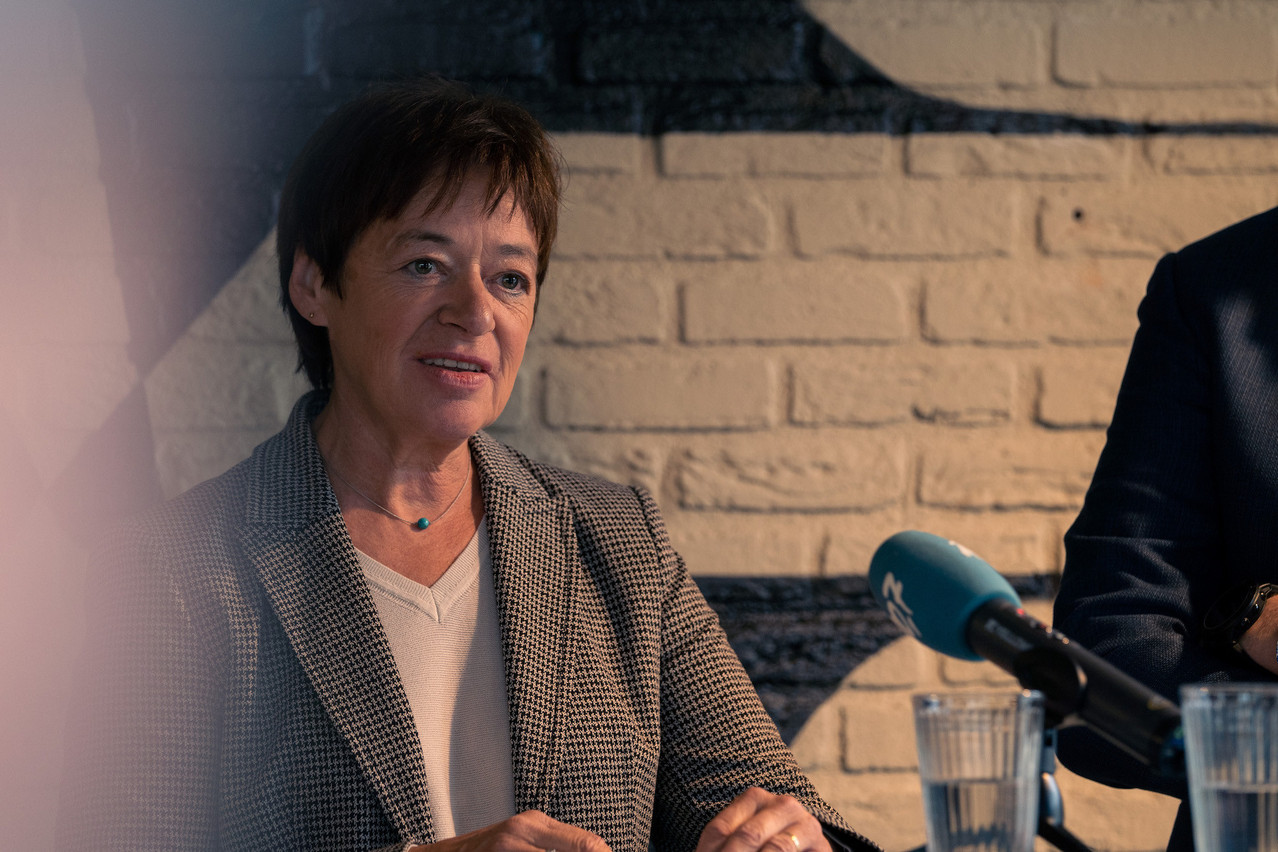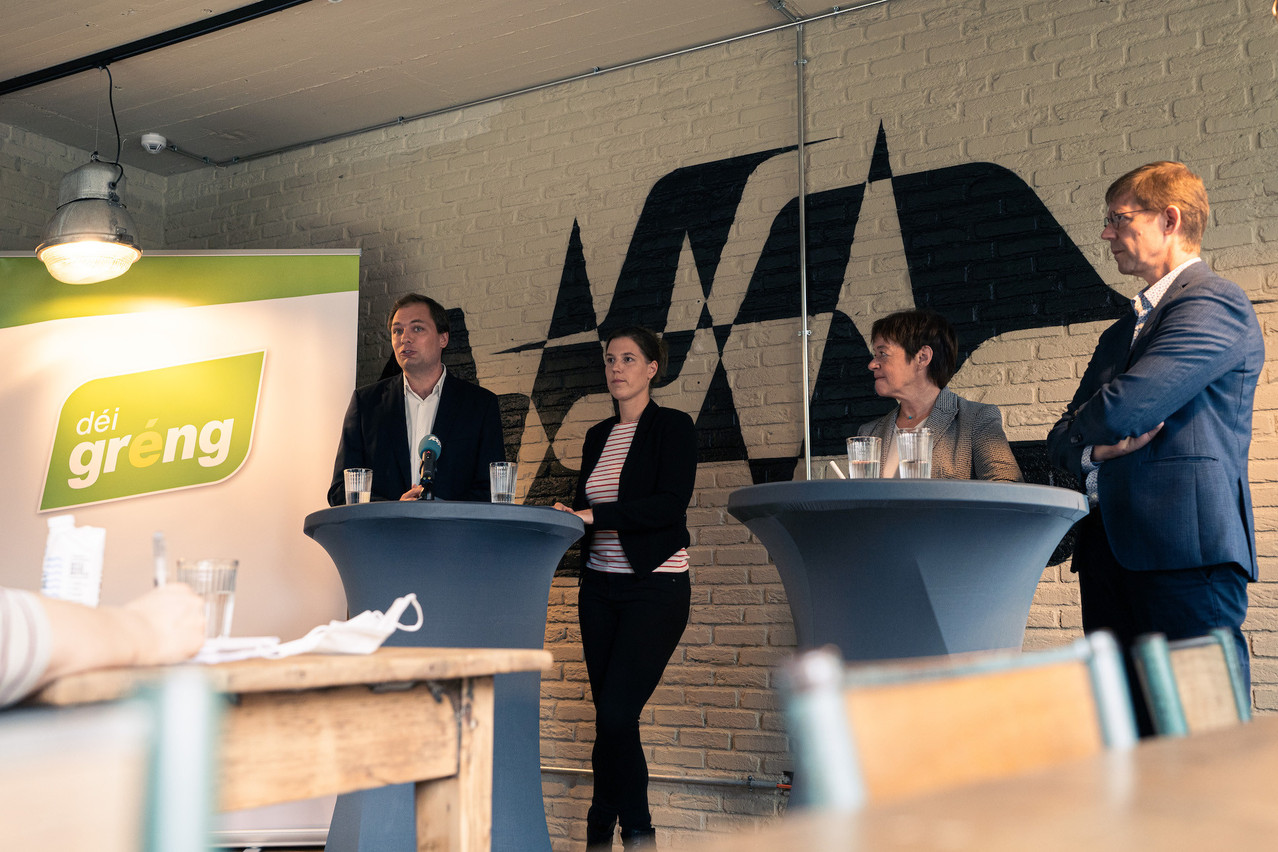After more than a year and a half of the pandemic, the Green MPs did not want to make covid-19 the theme of their return to parliament as session start next week. "We want other themes to be at the centre of discussions,” said the president of the faction, Josée Lorsché, during their press conference on Wednesday.
The party addressed three essential themes: health, taxation and security. The latter, which has been in the news in recent weeks due to the lack of security around the central train station and Bonnevoie districts, has created strong in the government coalition, namely the DP--who, alongside the CSV, represent the majority in the City of Luxembourg--and Déi Gréng, the opposition in the municipal council.
The Déi Gréng faction did not seem to want to bury the hatchet. It said some parties--the DP and the CSV--pursue a “symbolic policy” by hiring a, while the Greens want to focus on “on solving the root problems” by going beyond “40 years of unsuccessful repression in favour of a cross-cutting approach that does justice to the complexity of the issue and proposes global solutions.”
“More difficult” common path
"In coalitions, there are always issues where you have to find a common path. This time it is a bit more difficult,” said Lorsché. The common path is the announced by the minister for internal security, Henri Kox (Déi Gréng) last year. With this in mind, "our coalition members no longer have the same arguments to say that we need security guards,” said Lorsché.

"The Abrigado is really outdated, it is not a model that can work", says Josée Lorsché, who advocates the multiplication of "Housing First" projects and housing for people with addictions. (Photo: déi Gréng)
But for Déi Gréng, it is not enough to focus solely on repression: it is also necessary to rely on community policing and the expansion of support services for drug addicts rather than on criminalisation. "The Abrigado is really outdated, it's not a model that can work," said Lorsché, advocating “housing first" projects and housing for people suffering from addiction.
Positioning for the elections
Putting this sensitive topic centre stage of the political “rentrée” could be seen as the party positioning itself ahead of the next elections in 2023. This is a suspicion by Déi Lénk the day before during its own political reopening: "Everyone in this coalition is already preparing for the 2023 legislative elections”, even if this prevents them from carrying out joint projects, said their spokesperson, Carole Thoma.
"It is normal for everyone to take a stand" in the run-up to the campaign, said Lorsché, who also said that this does not undermine the work of the coalition: "We are a party in our own right, we must show that we still have our identity, but that does not mean that we cannot work together. We are in a system that is still framed by the coalition and we are determined to achieve it."
Targeted tax reforms
On the tax side, although Déi Gréng seems to have accepted the announced by the minister of finance, Pierre Gramegna (DP), targeted changes are still necessary, according to MP François Benoy (Déi Gréng), especially after the health crisis that hit the most financially insecure people the hardest. Taxation remains a tool to fight against inequalities and climate change, he said.
The party is targeting the CO2 tax, which it said will have to increase over the next few years, and even after 2023. At the same time, tax relief for low-income citizens and families should be considered. Taxation is also a lever for tackling the housing crisis: here it is a question of moving away from accelerated depreciation--an outdated tool--and of urgently reforming property tax, in order to mobilise building land and vacant housing, the party said.
Generally speaking, it would be harmful "to fall back into the old reflexes of an austerity policy,” said Benoy. “Our public finances are in relatively good shape" and "a strong investment policy remains necessary,” he said. It remains to be seen whether this will be met with unanimous approval within the coalition.
This story was first published on . It has been translated and edited for Delano.
